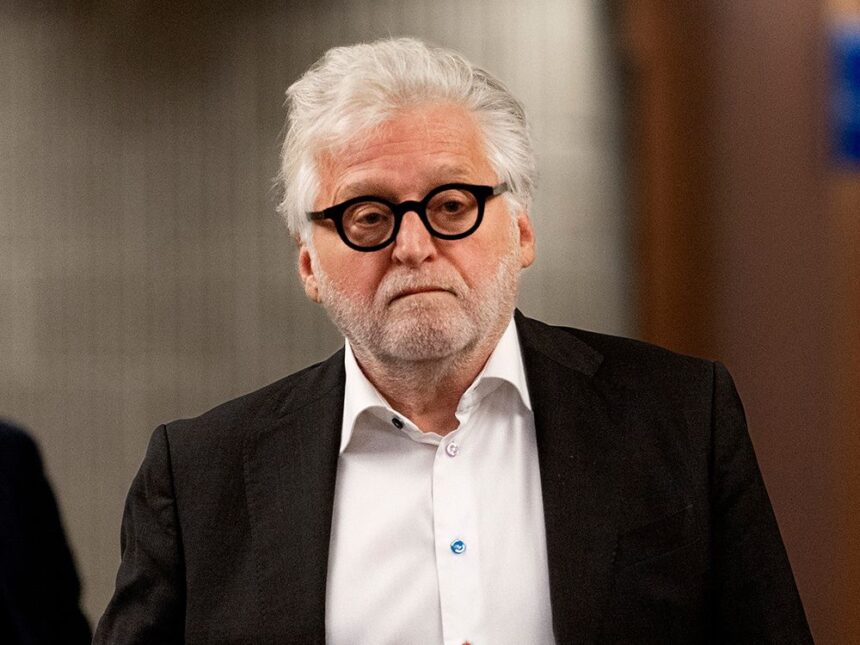Article – I observed courtroom scenes last week that would shock most Canadians unfamiliar with sexual assault trials. The Just For Laughs founder Gilbert Rozon sat motionless as his accuser faced aggressive questioning from defense lawyers.
“I remember the weight of his body,” testified the complainant, whose identity is protected by a publication ban. Her voice trembled slightly while recounting an alleged 1980s assault. I counted fourteen people in the gallery, silent as she described waking to find Rozon allegedly on top of her.
Quebec Court Judge Mélanie Hébert repeatedly reminded counsel about questioning limits after defense strategies drew objections from Crown prosecutor Bruno Ménard. The tension between legal tactics and trauma sensitivity was palpable in Montreal’s courthouse.
“Cross-examination in sexual assault cases walks a difficult line,” explains McGill University law professor Shauna Van Praagh, who specializes in trauma-informed justice. “Defense counsel has obligations to their client, but courts increasingly recognize how traditional approaches can retraumatize complainants.”
The Rozon case exemplifies challenges in prosecuting decades-old allegations. With limited physical evidence, proceedings often become credibility contests between complainant and accused. I reviewed court filings showing the defense strategy centers on inconsistencies in the complainant’s recollections—a common tactic that research shows misunderstands trauma’s effect on memory.
“Trauma doesn’t record like a video camera,” said Dr. Lori Haskell, a leading Canadian expert on trauma and memory, when I interviewed her about similar cases last year. “Fragmented memories are actually consistent with how the brain processes threatening experiences.”
The courtroom dynamic shifted noticeably when Rozon himself testified. The entertainment mogul denied all allegations, claiming the encounter was consensual. Spectators whispered as he confidently answered his lawyer’s questions, though his demeanor changed during cross-examination by prosecutor Ménard.
This case exists within a broader Canadian legal landscape still adapting to evolving understandings of sexual violence. The 2017 #MeToo movement that swept through Quebec’s entertainment industry prompted multiple allegations against Rozon, though most couldn’t proceed to trial due to limitations periods.
“The system requires extraordinary courage from complainants,” says Julie Lalonde, women’s rights advocate and public educator on sexual violence. “They must publicly recount traumatic experiences while facing scrutiny of their character, behavior, and memory.”
Court documents reveal complex legal arguments about admissibility of similar fact evidence—other allegations that might establish patterns but risk prejudicing the proceedings. Judge Hébert has carefully managed this balancing act throughout pre-trial motions.
During a tense afternoon exchange, defense counsel questioned why the complainant waited decades to come forward. The prosecutor objected, citing Supreme Court guidance in R v. Barton that discourages reliance on myths about “typical” victim behavior. Judge Hébert sustained the objection after a brief recess.
“Delayed reporting is common and well-documented,” confirms Nathalie Léger, director of Quebec’s Sexual Violence Resource Center. “Research shows most sexual assaults go unreported, often due to fear, shame, or power imbalances—especially when the accused holds significant social position.”
I observed Rozon’s supporters and industry colleagues in attendance, creating an atmosphere that underscored the power dynamics at play. The complainant entered and exited through side doors, escorted by victim services workers.
Legal experts suggest this case could influence how Canadian courts handle historical sexual assault allegations. The Supreme Court has increasingly recognized the need to adapt evidentiary approaches while maintaining fair trial rights.
“Courts are evolving,” says former Crown prosecutor David Butt, who specializes in sexual assault law. “We’re seeing more trauma-informed approaches that maintain procedural fairness while acknowledging what research tells us about sexual violence.”
Whatever the verdict, this case highlights ongoing tensions in Canada’s justice system as it confronts sexual violence allegations against powerful figures. The proceedings continue next week with closing arguments expected by Wednesday.
After court adjourned, I watched the complainant’s supporters gather quietly in the hallway. One whispered something in her ear that brought a brief smile—a momentary break from the clinical legal environment where the most intimate violation must be dissected through the dispassionate lens of reasonable doubt.






